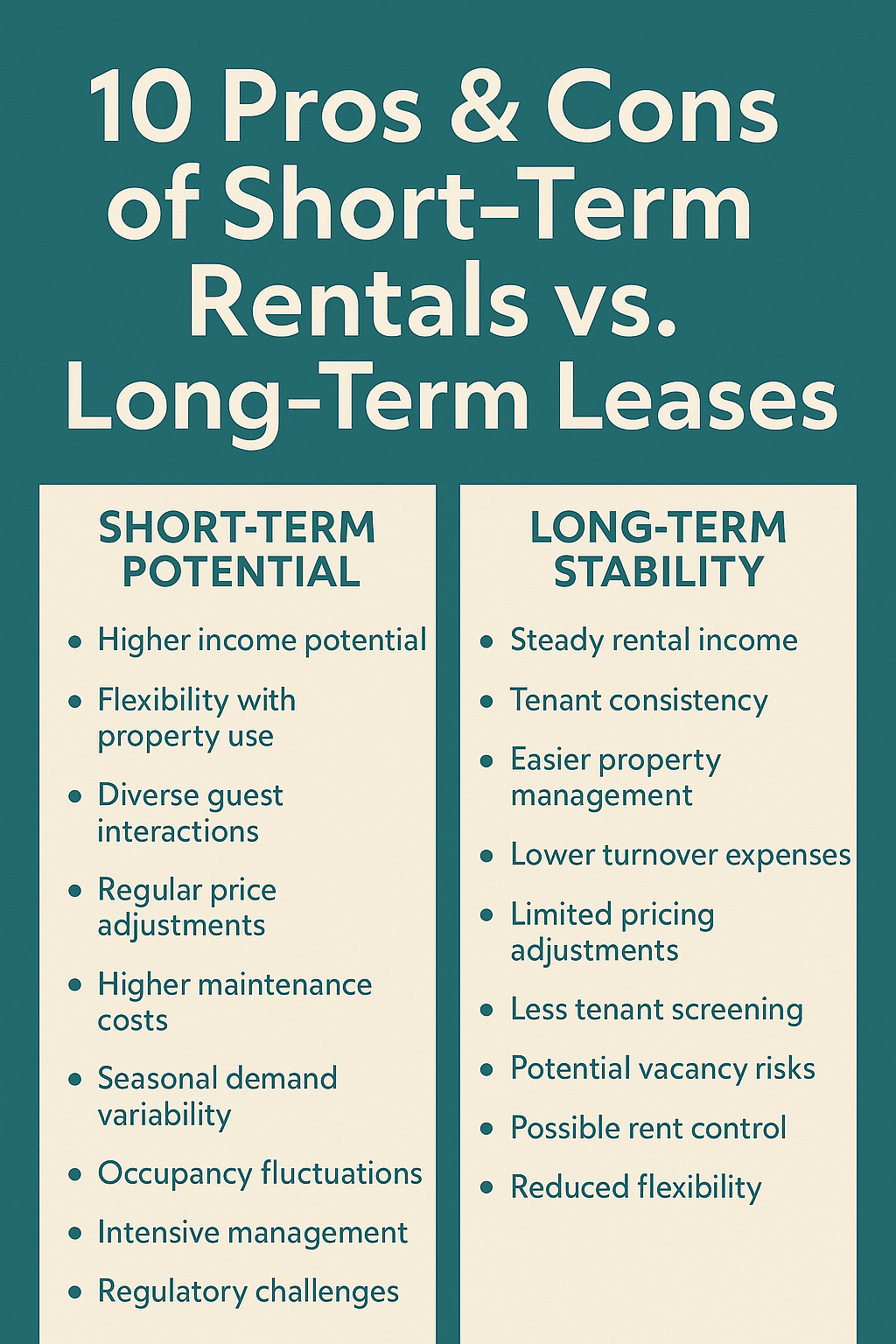
When investing in real estate or renting out a property, one of the first big decisions you'll face is choosing between a short-term rental and a long-term lease. Each option offers its own unique set of benefits and challenges. To help you make the best decision for your goals, here are the top 10 pros and cons of short-term rentals versus long-term leases.
Short-Term Rentals
Pros:- Higher Income Potential: Short-term rentals often command higher nightly or weekly rates compared to monthly leases.
- Flexibility: You can adjust pricing for peak seasons and block off dates for personal use.
- Tax Advantages: Certain expenses, like utilities and furnishing costs, may be deductible.
- Frequent Inspections: With a steady flow of guests, you can regularly check the condition of your property.
- Market Responsiveness: Easier to adjust pricing or strategy quickly based on demand trends.
- Higher Turnover and Vacancy Rates: Frequent gaps between bookings can create inconsistent income.
- Management Intensive: Handling bookings, cleanings, guest communications, and maintenance requires time or a property manager.
- Regulatory Challenges: Some municipalities have strict rules or restrictions on short-term rentals.
- Wear and Tear: Frequent guests can cause faster deterioration of furniture and fixtures.
- Seasonal Fluctuations: Income can dip sharply during off-peak months.
Long-Term Leases
Pros:- Steady, Predictable Income: Monthly rent provides a consistent and reliable cash flow.
- Lower Management Requirements: Fewer tenant turnovers mean less administrative work and lower marketing costs.
- Tenant Responsibility: Long-term tenants typically cover some utilities and maintain minor upkeep.
- Less Furnishing Required: Most long-term rentals are leased unfurnished, reducing initial investment costs.
- Simpler Tax Reporting: Fewer income fluctuations make accounting easier.
- Lower Profit Potential: Monthly rent is usually lower compared to high-season short-term rates.
- Limited Flexibility: You can’t easily use the property yourself or adjust rent mid-lease.
- Tenant Risk: A problematic tenant can lead to costly eviction processes and property damage.
- Longer Vacancy Periods: Finding a new long-term tenant can take time if someone breaks their lease.
- Lease Restrictions: You're often bound by rent control laws and regulations depending on your area.